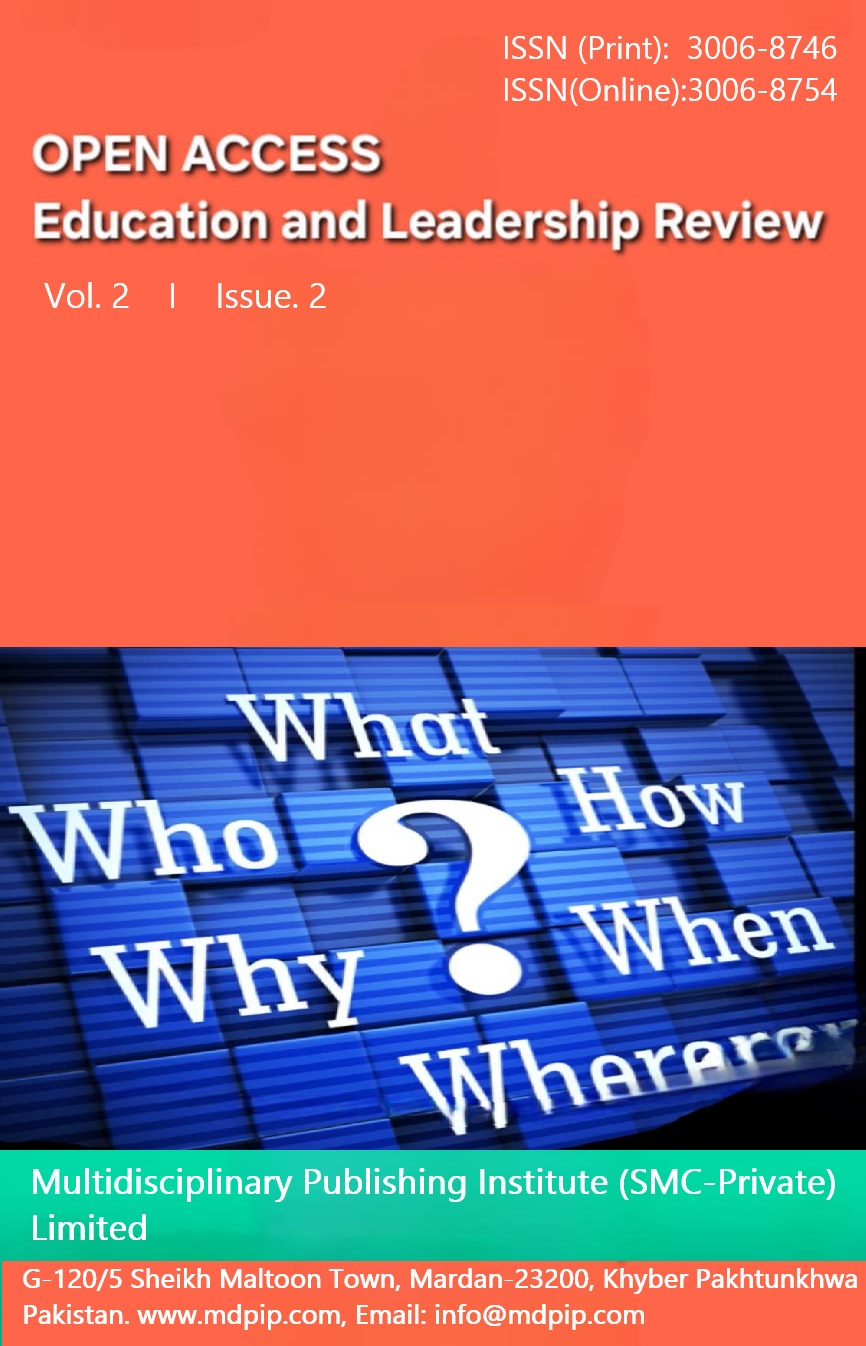The Role of Academic Self-Efficacy in Predicting Academic Performance and Test Anxiety among Undergraduate Students
DOI:
https://doi.org/10.59644/oaelr.2(2).2025.169Keywords:
Academic Self-Efficacy, Test Anxiety, Academic Performance, Undergraduate Students, Educational PsychologyAbstract
This study investigated the predictive role of academic self-efficacy concerning academic performance and test anxiety among undergraduate students. Students from two universities were recruited through purposive sampling technique, sample consists of 150 students (M = 20.4 years, SD = 1.8; 60% women, 40%men). Two measures of academic self-efficacy and test anxiety were completed by participants, and the GPA was self-reported. According to Pearson correlation and linear regression, academic self-efficacy significantly positively predicts academic performance (β .42, p .01) and significantly negatively predicts test anxiety (β .51, p .001 Moreover, academic performance had a significant and predictive negative relationship with test anxiety (β = −.37, p < .01). These findings highlight the significance of building academic self-efficacy to facilitate students’ achievement and lower levels of academic distress associated with anxiety.

Downloads
Published
How to Cite
Issue
Section
License
Copyright (c) 2025 Open Access Education and Leadership Review

This work is licensed under a Creative Commons Attribution-NonCommercial 4.0 International License.





